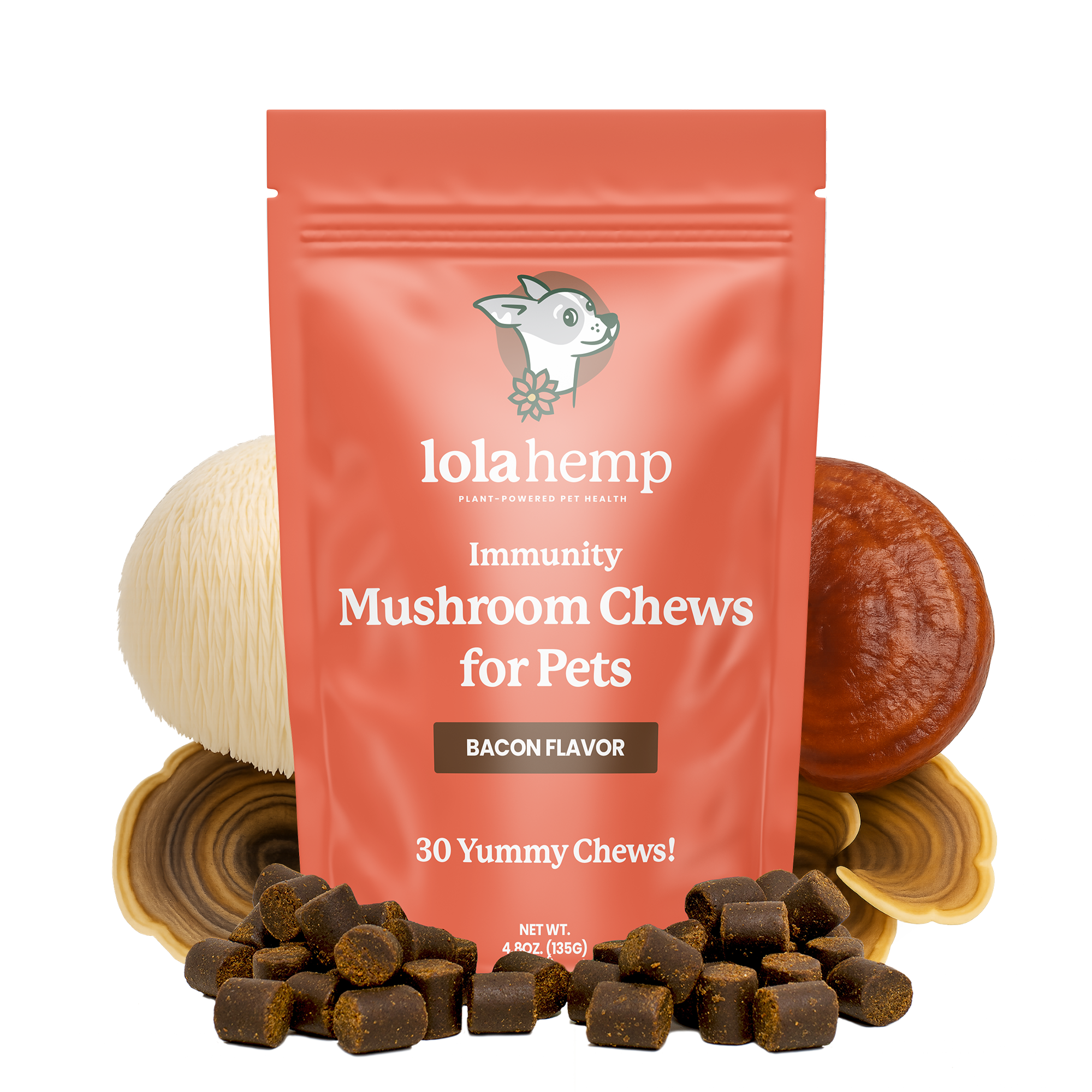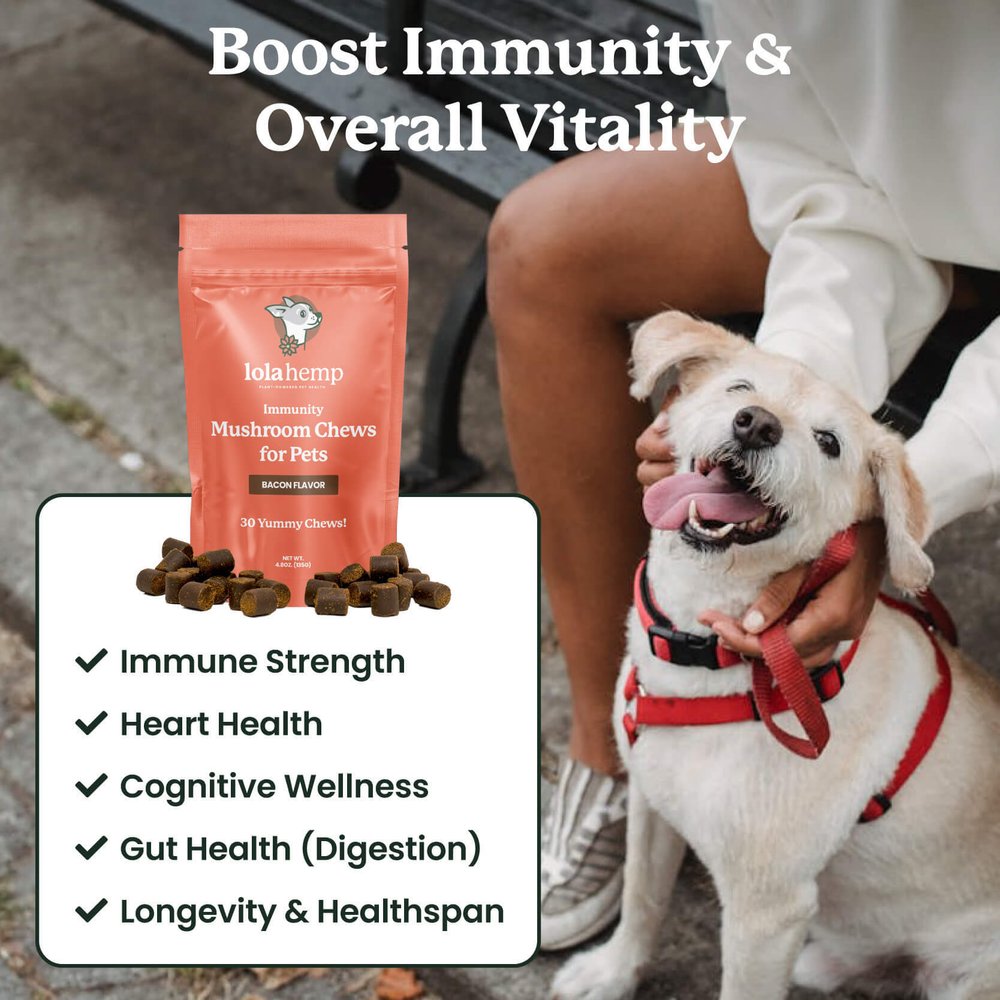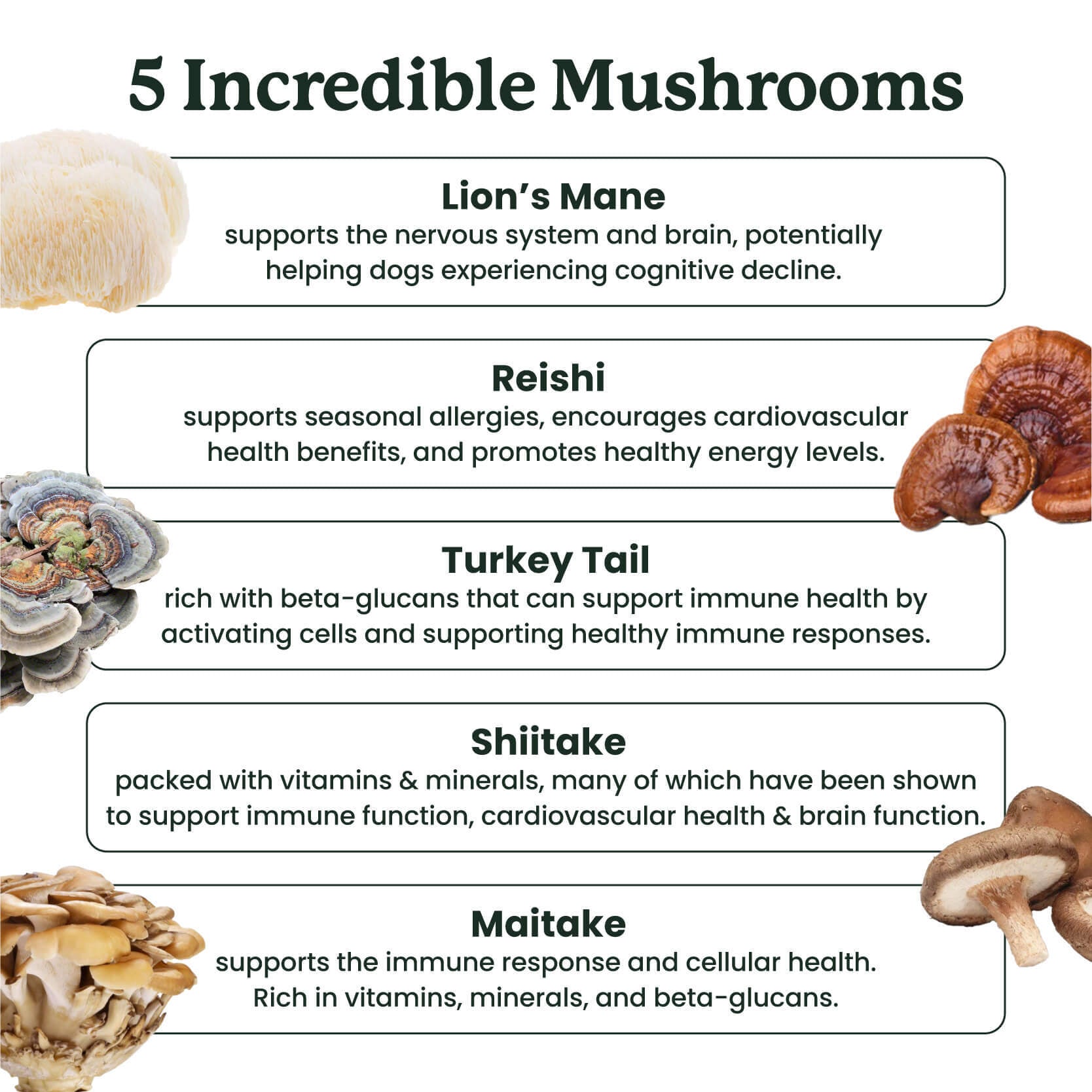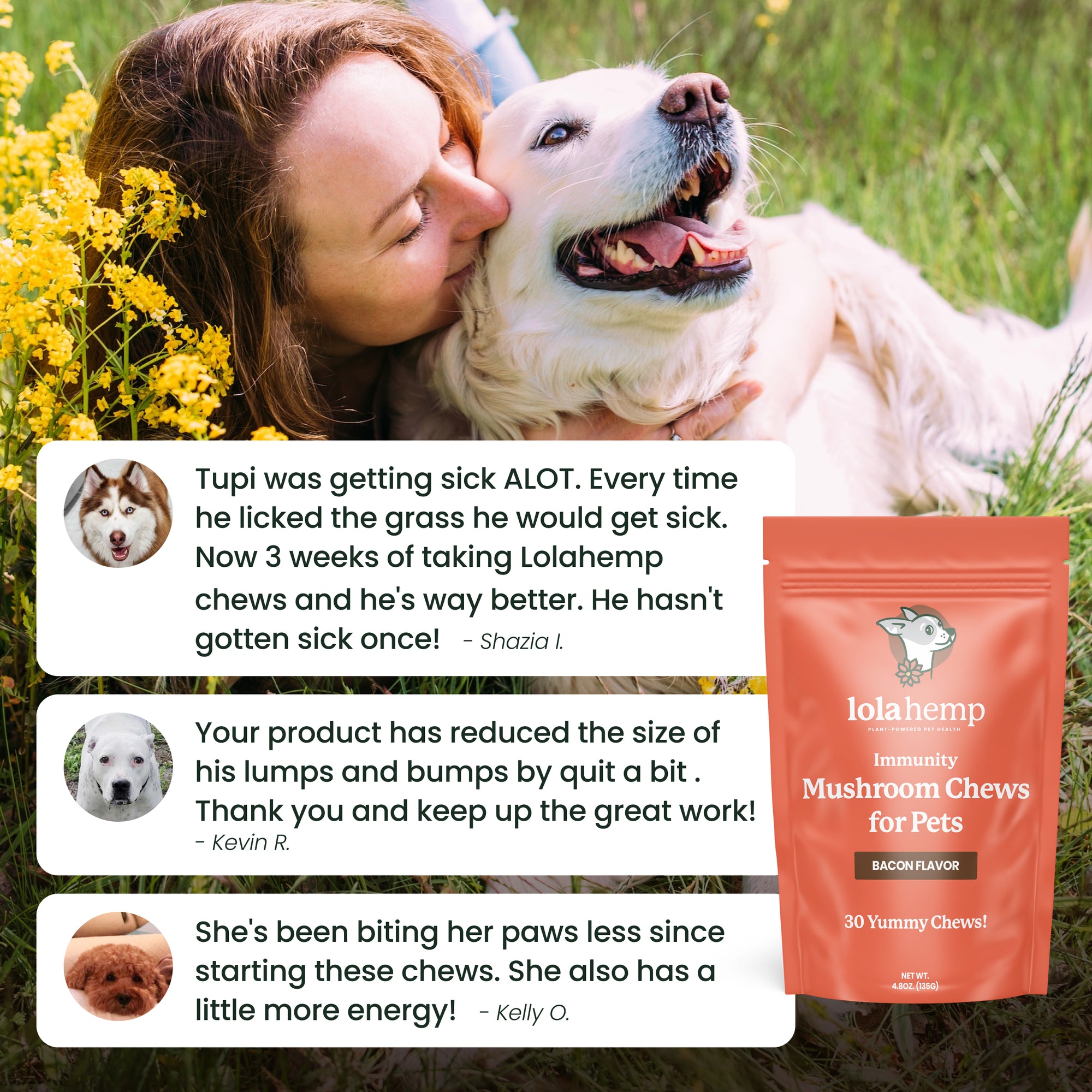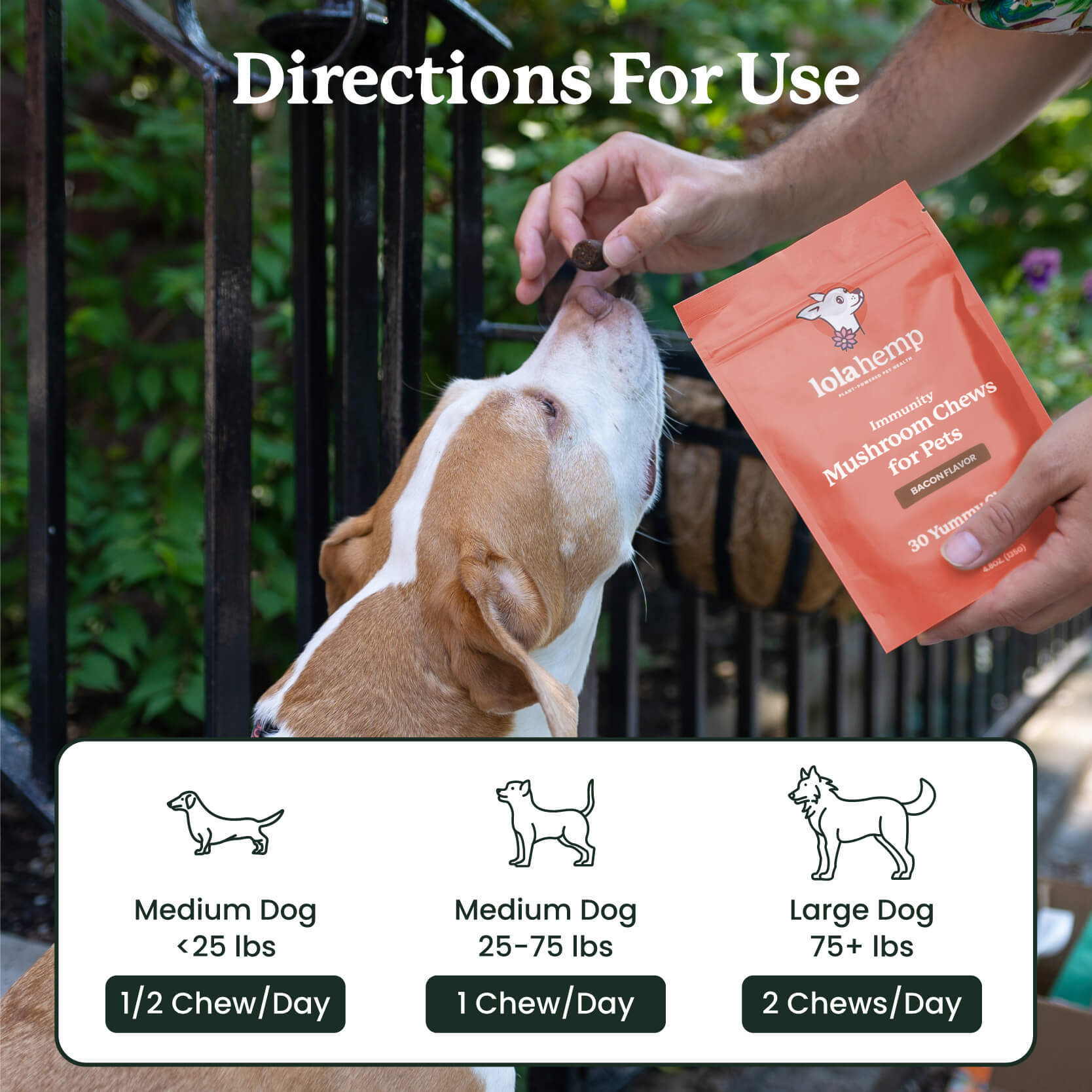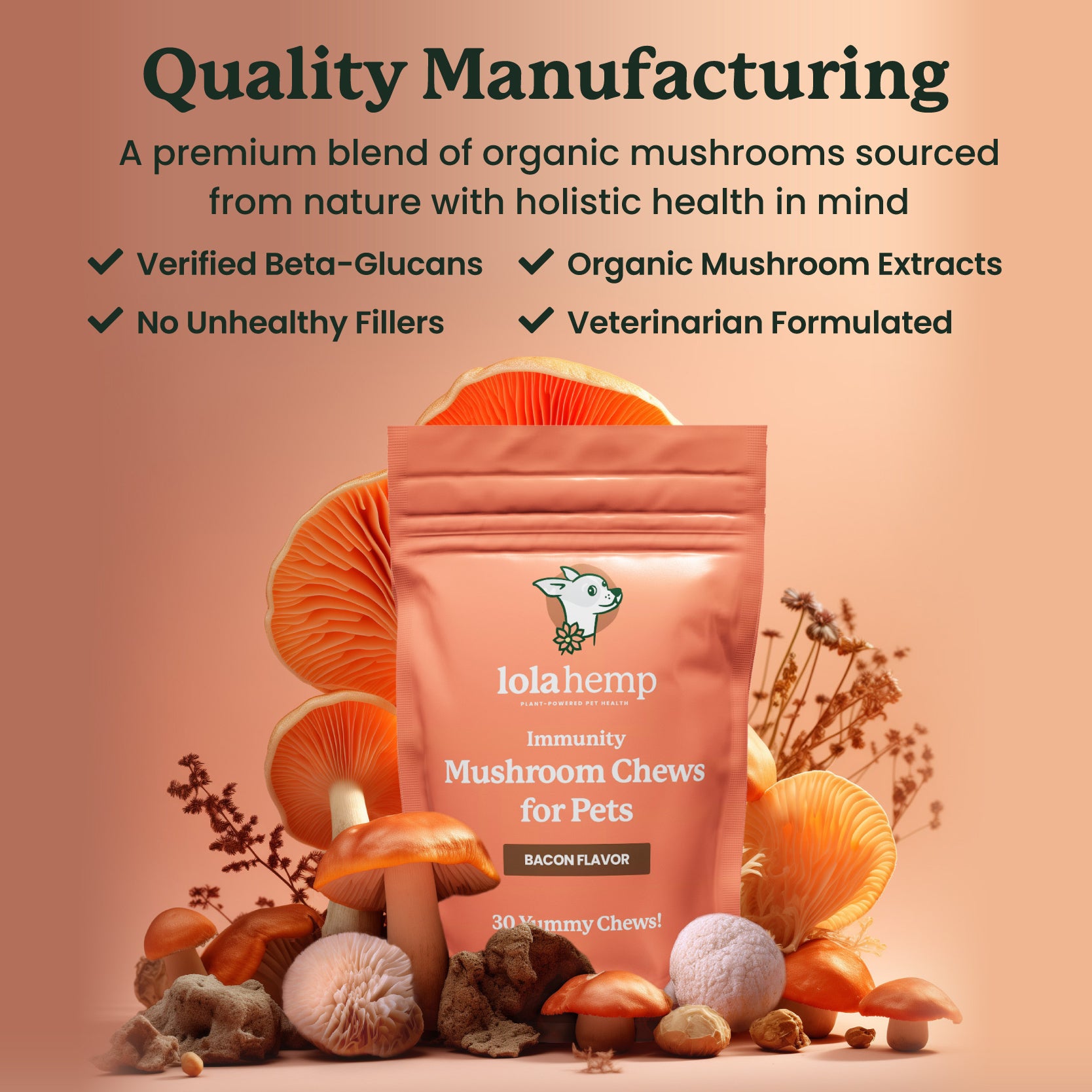If you’re exploring ways to boost your dog’s health, you’ve likely heard about the benefits of mushrooms. Used for centuries in traditional medicine, certain mushrooms are now a go-to option for supporting canine immune systems.
From managing inflammation to improving overall vitality, these natural powerhouses could be just what your dog needs. But how do they work, and will they make a noticeable difference for your pup? Let’s dive in and explore how mushrooms can help your dog thrive.
Why a Dog’s Immune System Matters
Your dog’s immune system is like their personal defense team, working around the clock to fight off infections, reduce inflammation, and keep them feeling their best.
If your dog seems to catch illnesses easily, struggles with allergies, or is dealing with chronic conditions, their immune system might need some extra support. That’s where mushrooms come in—they offer a natural way to give your dog’s immune system the boost it needs.
The Benefits of Mushrooms for Your Dog's Immune System
Mushrooms are more than just a trendy supplement; they’re packed with compounds that can help your dog feel their best. Here’s a look at some of the most popular ones:
- Reishi Mushrooms: Known as the “mushroom of immortality,” Reishi helps regulate the immune response and promotes calmness.
- Turkey Tail Mushrooms: Famous for their immune-boosting polysaccharides, these mushrooms are particularly helpful for supporting dogs with weakened immune systems.
- Shiitake Mushrooms: Loaded with nutrients, Shiitake mushrooms help maintain cell health and provide antioxidant support.
These mushrooms are packed with beta-glucans, which help the immune system recognize and respond to threats, making them a powerful addition to your dog’s health routine.
How to Safely Incorporate Mushrooms into Your Dog’s Diet
Adding mushrooms to your dog’s diet is simple, but it’s important to do it right:
- Choose High-Quality Products: Look for organic supplements designed specifically for dogs. Powders, tinctures, or treats are easy ways to get started.
- Start Slow: Introduce the supplement gradually and monitor your dog’s response.
- Talk to Your Vet: Your vet can help you decide on the right type and dose based on your dog’s unique needs.
And remember—wild mushrooms are off-limits! Stick to safe, tested products to avoid any risks.
How Will I Know if Mushrooms Are Helping My Dog?
One of the most rewarding parts of adding mushrooms to your dog’s routine is seeing the changes over time. So, how will you know it’s working? Here are a few signs to look for:
- Improved Energy Levels: Mushrooms can help your dog feel more vibrant and active, especially if they’ve been sluggish.
- Better Recovery: If your dog is prone to infections or gets sick often, you might notice fewer illnesses or faster healing.
- Healthier Skin and Coat: A strong immune system can lead to visible improvements, like shinier fur and healthier skin.
Keep an eye on your dog’s overall mood, energy, and appearance. Subtle changes can be a sign that their immune system is getting the support it needs.
Conclusion
Mushrooms are a natural way to give your dog’s immune system a leg up. With their immune-modulating and antioxidant properties, they’re an excellent choice for dogs who need extra support to feel their best.
If you’re considering a mushroom supplement, choose a high-quality product like these immunity mushroom chews and consult your vet to get started. With a little patience, you could see some amazing results in your dog’s health and happiness.
Frequently Asked Questions About Mushrooms for Dogs’ Immune System
Are mushrooms safe for dogs?
Yes, certain mushrooms such as reishi, turkey tail, and shiitake are safe and beneficial for dogs when used in supplement form. Avoid feeding wild mushrooms, as many are toxic.
What are the benefits of mushrooms for dogs?
Mushrooms can support immune function, reduce inflammation, and provide antioxidant protection. They may also promote energy, cell health, and recovery.
How should I give mushrooms to my dog?
Use a veterinarian-approved mushroom supplement formulated for pets, such as chews, powders, or tinctures. Follow dosage instructions carefully.
Can I give my dog raw mushrooms?
No, you should never give your dog raw or wild mushrooms, as they may contain toxins harmful or fatal to dogs.
How long before I see results from mushroom supplements?
Most dogs may show signs of improvement in energy, coat health, and overall well-being within a few weeks of consistent use, though individual results vary.

